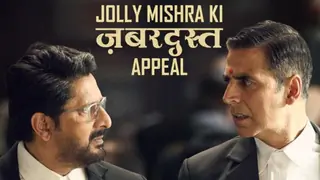I first want to thank Kools for being the pillar of support for all the dissenting voices who have interesting and differing perspectives. Not everyone agrees on everything but all different perspectives can be expressed here without hesitation. I have sometimes expressed opinions that may be very different from others; but they have been accepted as just coming from a different POV. I really appreciate the spirit of conversation and debate that prevails here.
That is why I am posting here some of my views. Just my POV and not for argument. I apologize for its length.
********************************************************************
I guess any presentation of observation may benefit from some basic declaration about one's definitions of important terms about what is being observed and consistent adherence to them.
Such operative terms and phrases in many PR related discussions appear to me to be
- bhalaayi, - responsibility in offering deal or suggestion and its acceptance, - genuine stress leading to physical and mental distress, - jealousy and obsessive possessive behavior , - respect for others or lack thereof
Here is how I define and follow these terms and phrases, especially with regard to the three characters that remain the most discussed ones, based on what is shown. I am not saying that my definitions are perfect, others may define them differently, but I adhere to them in looking at characters
1) bhalaayi - an attitude or act of helping someone, at times even at a cost for oneself.
Purvi's act of leaving Mumbai to save Arjun and Ovi's marriage (even if it also helped her save herself from infamy) was a genuine act of bhalaayi in my view. Similarly, even though extremely immature and thoughtlessly done, her impulse to give away her own child to Ovi can surely be seen as her desire to help Ovi. And this is truly commendable.
But the same impulse to sacrifice one's right in order to help another person is found in Ovi's acts too, which closely parallel Purvi's. Her leaving Arjun (she did not have to), hiding her pregnancy (for which she gets blamed ) and her participating in the Arvi wedding should not be underestimated in this regard. From the angle of humanity, these are commendable decisions too.
2) responsibility in offering deal or suggestion and its acceptance - the one who makes the offer and the one who accepts it bear responsibility almost equally
The initial unethical deal offer by Ovi was accepted by Purvi and under duress by Arjun.
The unethical suggestion or demand to swap babies was made by Purvi and accepted by Onir under duress.
Now, if one views Ovi as more responsible for the debacle in the first instance, one has to accept that Purvi was more responsible for the second debacle. It cannot be the case that in the first Ovi was more responsible and in the second Onir. That is not consistent in my view.
3) genuine stress leading to physical and mental distress - when clinical opinion defines someone as being under stress or if there is a situation in which an average person would feel distressed
Did what Purvi see in Canada on her surprise visit cause extreme stress for her in that moment? Yes, surely. Perhaps it also led to her miscarriage (I use "perhaps" because we do not know when it happened or if it indeed happened.). It would be normal for a woman to be stressed out in that situation. But did she owe it to her husband (whom she claims to love to death) to hear him out after a few hours or a few days or a few months or a few years? Definitely. What she did for 20 + years is not based on stress but on stubbornness and self-righteous attitude. It did not change even as this character matured to middle age.
By the same token, was Ovi stressed during her pregnancy due to Arjun's attitude? Surely. Which wife would not be on seeing her husband day dreaming about his ex constantly? And it was clinically diagnosed by Onir. Was it Ok that she took to drinking? No. But her stress was genuine and it is not Ok to give Arjun a wiggling way out by saying that Ovi knew Arjun did not love her. Well, if you accepted a deal, it is your responsibility to follow through with it sincerely. And Ovi's behavior lasted for may be for over a year; not for 20 years.
4) jealousy and obsessive possessive behavior - when a person cannot see someone to whom they are close with another person and act irrationally to get that person away from the other person
Did Ovi engage in jealous and obsessive possessive behavior? Yes she did when she first came from Canada. Her offer of the deal is a proof of it. (But it cannot be discounted that Arjun had lied to her for long and had given her a word for marriage, however dishonest.). What is the situation now? If she was jealous now, she would not allow Pia to do what she is doing. From what is shown there is no indication that she is participating in the charade due to jealousy (even though I do think it is completely stupid of her to continue with it). All indications very clearly shown (her conversations with Arjun and Pia in particular) are quite to the contrary.
Is Purvi engaged in obsessive possessive behavior in the current rack? Yes. Even though told that Arjun has been married to Ovi for 20 years repeatedly, for the sake of getting Arjun back she keeps getting involved in strange situations that lead to problems for everyone. Going to Chadda's party, which led to Arjun's arrest and eventually to her engagement with RK, is a part of such behavior. Granted that Arjun does love her, it is really strange that now that SHE wants to know the truth he and Ovi have to tell her that, even though she stubbornly refused to listen for 20 + years. How fair is that expectation?
(And the misunderstanding is seen to be of all the people Ovi's fault in that she did not clarify with her parents. Truly mind boggling. Unbelievable! )
Arjun too is engaging in jealous and obsessive possessive behavior by pushing Purvi away on the one hand and following her on the other.
5) respect for others or lack thereof - these have fairly widely accepted definitions
Ovi certainly did not show respect for Archana in the beginning since she had believed all that was told to her by Savita and had been brought up to be a spoiled brat. It was bad behavior toward an elder for sure. But when she learned the truth and grew in age and experience, she changed her attitude and accepted her mistakes. This is commendable and endearing.
She also accepted showing respect to others as a value. That Ovi has instilled respect for elders including her mausi and her father (who has been so unfair to her) in Pia is apparent. Pia's goodness cannot be seen as a gift of God. Attitudes of children are reflections of their rearing. I don't think this point needs to be stressed.
As far as respecting elders, I have to say Purvi has been very good. From Archana and Manav to Sulochana and DK, she has shown respect for all. But is respect for others a value she holds dear? Has she instilled this in her daughter? Only partially. What does it mean to ask your child to talk to her father and at the same time to not safeguard tightly the diary that tells her that he has been disloyal to her mother? How is the effect of this different in terms of young Ovi's behavior to Archana and Pari's to Arjun (even though I do not attribute Savita's scheming attitude to Purvi)?
And why was Purvi creating bad impression about Ovi in the mind of a 21 year old employee (Pia) whom she had met only a few days ago by saying that Ovi took away everything from her?
Further, respect is to be shown not only to elders, but also to all who deserve it. What did Purvi do to Onir? She belittled everything done for her by him when she stormed out of his place. She never apologized to him for causing him trouble and not trusting him (even after learning the truth).
Ovi has apologized and admitted her mistakes. Now it is only appropriate that the gesture is returned to her by Arvi (Arjun for lying to her and taking her for granted, and Purvi for swapping of babies as well as for misunderstanding her for 20 + years). And Purvi certainly should apologize to Onir.
This is not about Purvi always being wrong. This is about fairness.
































